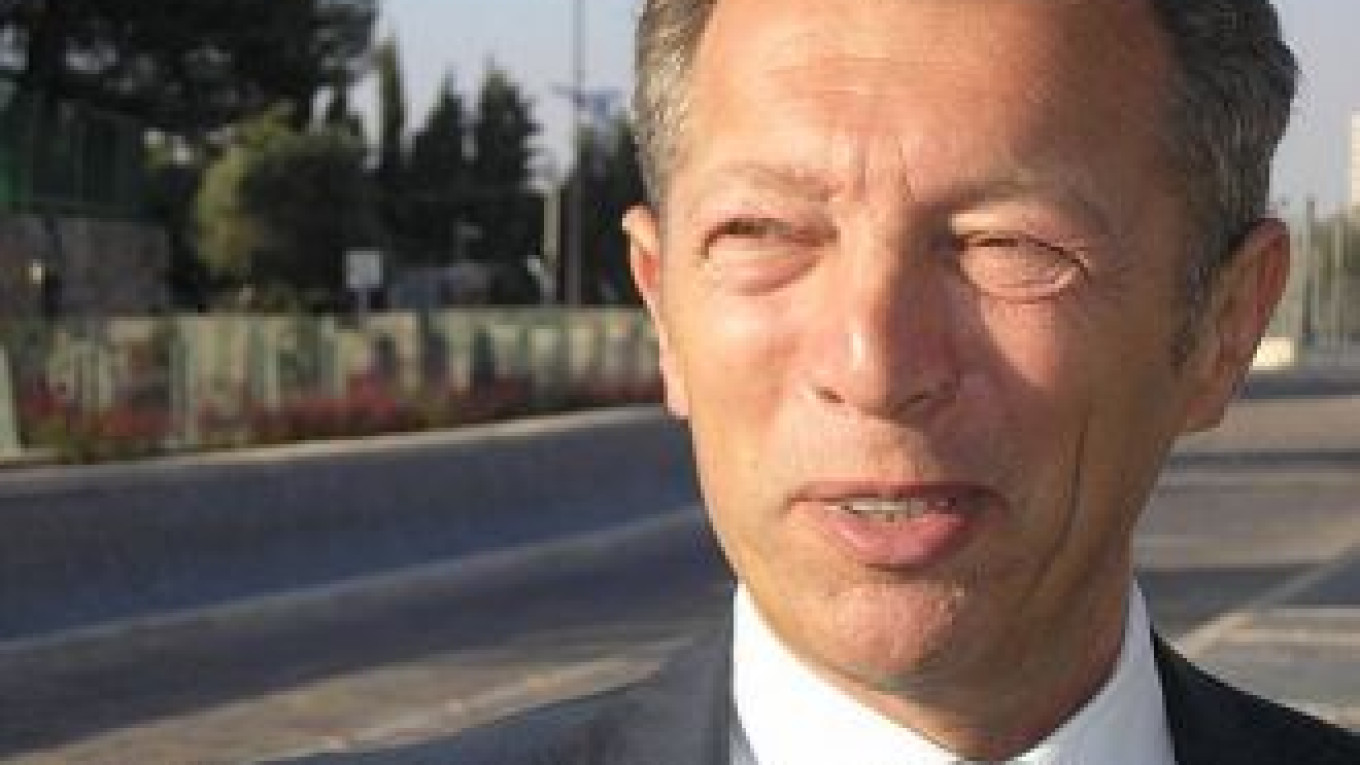LONDON — A court battle between multimillionaires who fell out after making a fortune from Angolan diamonds ended Friday when Arkady Gaydamak lost his bid to reclaim hundreds of millions of dollars he said he was owed by "king of diamonds" Lev Leviev.
The two are among a handful of buccaneering businessmen who have made fortunes in countries like Angola, Congo and Guinea, securing positions of influence that have helped their companies profit hugely from the continent's rich natural resources.
The case, heard in London, was brought by the Russian-Israeli tycoon over disputed unpaid commissions and dividends against the Uzbekistan-born Israeli Leviev, a renowned diamond trader who also controls property developer AFI Development, known for the AFIMall City shopping mall in Moskva-City.
Gaydamak, described by the judge as a "volatile and impulsive character" who was "distinctly prone to exaggeration," became involved in Angolan business and politics in the 1990s.
Gaydamak said he was instrumental in setting up Ascorp, the Angolan Diamond Selling Corporation, which had sole purchasing rights to Angolan diamonds.
Speaking by video link from Israel because of an outstanding French tax charge, Gaydamak told the High Court on the first day of the trial that he was entitled to about half of Leviev's diamond assets in Angola.
His argument rested on his claim that there was a written agreement between them dated December 2001.
The chief rabbi of? Russia, Berel Lazar, was entrusted with documents from an agreement to share profits from the jewel-trading venture, but he lost them, Gaydamak told the court.
"I have maintained all along that we had an agreement," Gaydamak said in his e-mail. "It was always surprising and disappointing that Mr. Leviev and Rabbi Lazar persistently lied in this regard."
Leviev denied signing the agreement.
Gaydamak argued that Leviev agreed to hold their joint assets, in particular their share in Ascorp and any income from those assets, on trust in equal shares.
Leviev's lawyers argued that those claims were compromised by a settlement agreement between the two in August 2011 in which Gaydamak signed away his rights to the assets. Gaydamak said he was induced to sign it.
High Court judge Geoffrey Vos said in his judgment Friday: "I find that the 2001 agreement was indeed signed by Mr. Gaydamak and Mr. Leviev, and was a valid and enforceable agreement.
"But the parties entered a valid and binding settlement agreement which took effect on August 6, 2011, whereby each party released all claims against the other. Accordingly the claim will be dismissed."
But Leviev did not escape criticism from the judge, who spoke of his arrogance and his "rewriting the history" by leaving some crucial characters out of the story.
Vos said he did "not accept either side's evidence in its entirety," with reference to evidence surrounding the disputed 2001 agreement.
The Angolan government ended the Ascorp monopoly in 2003, creating a semiopen market regulated by the state.
Gaydamak later issued a statement in which he said he would apply for permission to appeal.
(Reuters, Bloomberg)
A Message from The Moscow Times:
Dear readers,
We are facing unprecedented challenges. Russia's Prosecutor General's Office has designated The Moscow Times as an "undesirable" organization, criminalizing our work and putting our staff at risk of prosecution. This follows our earlier unjust labeling as a "foreign agent."
These actions are direct attempts to silence independent journalism in Russia. The authorities claim our work "discredits the decisions of the Russian leadership." We see things differently: we strive to provide accurate, unbiased reporting on Russia.
We, the journalists of The Moscow Times, refuse to be silenced. But to continue our work, we need your help.
Your support, no matter how small, makes a world of difference. If you can, please support us monthly starting from just $2. It's quick to set up, and every contribution makes a significant impact.
By supporting The Moscow Times, you're defending open, independent journalism in the face of repression. Thank you for standing with us.
Remind me later.


